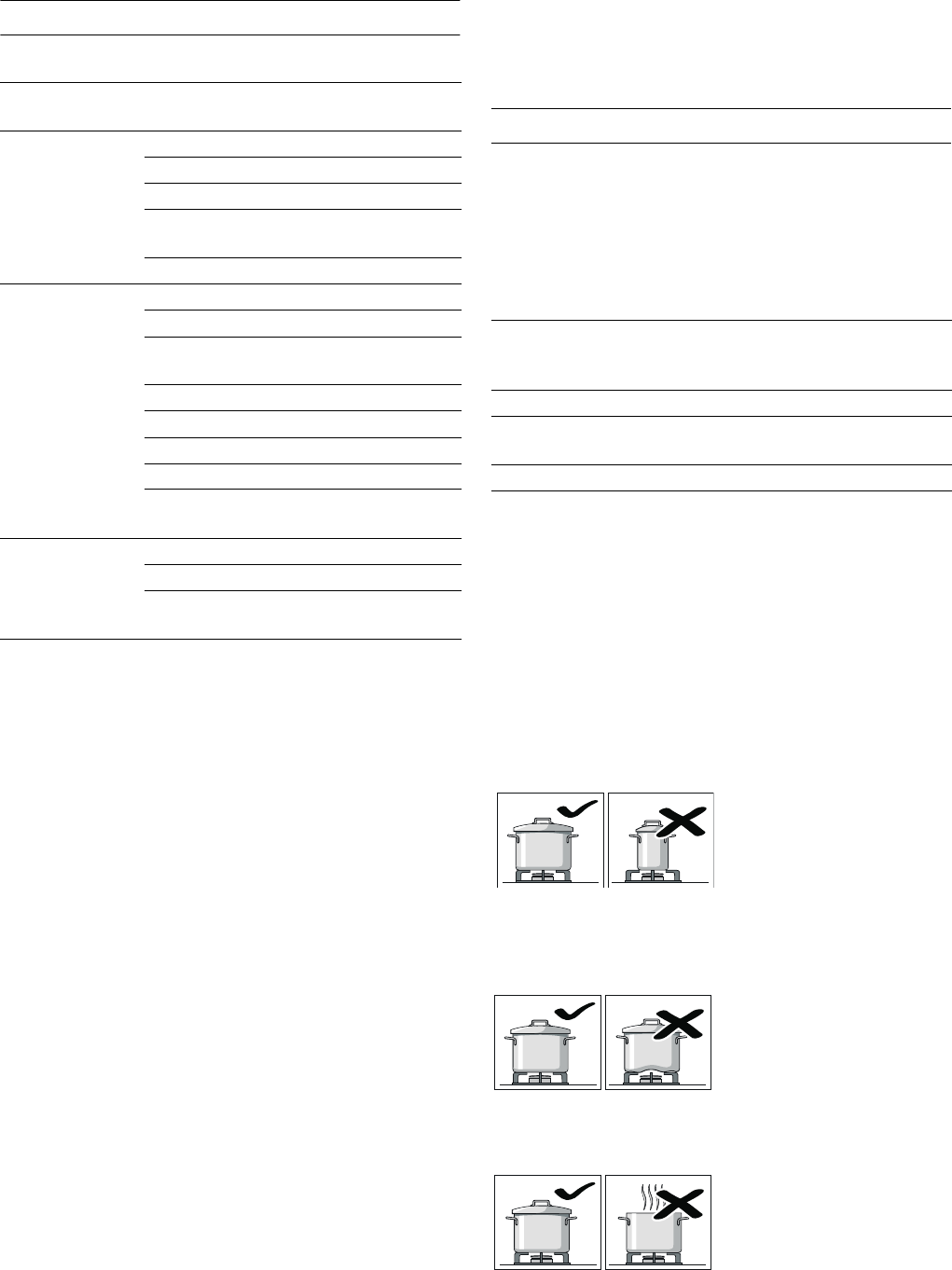
11
Settings table and tips
Tips for cooking and roasting
The values in the settings table serve as mere
guidelines, since more or less heat may be required,
depending on the type and condition of the foods, as
well as the size and fullness of the pot.
The high output causes grease and oil to heat up
quickly. Don't leave food unattended while frying;
grease can catch fire and burn the food.
The rear cooking zones should be used to prepare
foods requiring longer cooking times.
For parboiling, frying and deep-frying large portions,
you should use the high-output burners or wok
burners.
Wok tips
We recommend woks with a concave bottom. You can
order a high-quality wok as a special accessory (WP
400 001)
For cooking, only use cooking oil that can be heated
up, such as peanut oil, with the wok.
Cook the ingredients at high heat while stirring
constantly, for not too long. The vegetables should
still be firm to the bite.
It is advisable to use a flat ladle with a long handle,
made of heat-resistant material, to stir and scoop out.
Information on cookware
The following information will help you save energy
and avoid damage to cooking vessels.
Appropriate cooking vessels
Pots with a diameter of less than 90 mm or greater
than 280 mm (320 mm for wok burners) shouldn't
be used.
If you use larger pots, you must maintain a
minimum clearance of 50 mm between the cooking
vessel and surrounding flammable objects. A minimum
distance of 50 mm must be maintained between the
control knob or control panel and the pot or pan. The
cooking vessel must touch the control panel.
Information for use
Setting range Cooking
procedure
Examples
Full flame ‘ Parboiling Water
Frying Meat
Heating up Grease, fluid
Bringing to a
boil
Soups, sauces
Blanching Vegetables
From ‘ to ’ Roasting Meat, fish, potatoes
Baking Pastries, egg dishes
Simmering Dumplings, boiled
sausage, boiled meat
Whipping Creams, sauces
Boiling Soups, potatoes
Steaming Vegetables, fish
Stewing Vegetables, fruit, fish
Braising Goulash, roasts,
vegetables
Low flame ’ Thawing Frozen foods
Soaking Rice, pulses
Warming up Soups, stews,
vegetables in sauce
Burner Recommended
diameter of pot
base
Minimum diameter
of pot base
Normal burner 200 - 240 mm 90 mm
High-output
burner
240 - 280 mm 90 mm
Wok burner 240 - 320 mm 160 mm
Use cooking vessels of
appropriate size for the
particular burner.
Don't use small cooking
vessels on large burners.
The flame shouldn't come
in contact with the sides of
the cooking vessel.
Don't use any deformed
cooking vessels that don't
stand solidly on the
stovetop. The vessels could
tip over.
Only use cooking vessels
with flat and thick bottoms.
Don't cook without a lid or
if the lid is not on all the
way. The majority of the
heat is lost.


















